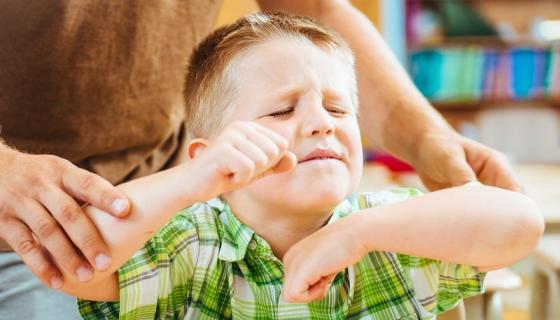
Responding to persistently challenging behaviour
Children with persistently challenging behaviours in education and care services need to be appropriately guided. A behaviour response plan is a proactive way forward.
When faced with children displaying challenging behaviours, it’s important that educators remember behaviour happens for a reason.
Does the child want social attention from a peer or adult? To escape or avoid something? To gain or avoid sensory input? To get something?
Remember, it’s the child’s behaviour you are being challenged by, not the child.
Try to say what you want the child to do rather than what you don’t want them to do. For example, ‘Hands down’ rather than ‘Stop hitting’.
All children need to be acknowledged as individuals. They have strengths, interests, needs, abilities and unique personalities.
Understanding and guiding challenging behaviour is vital for the safety and wellbeing of children and educators.
Approved providers, nominated supervisors and educators also have legal obligations. They must ensure children are given positive guidance and encouragement to acceptable behaviour.
This needs to be done with regard for family and cultural values, age and physical and intellectual development and abilities of each child being educated and cared for by the service. This is set out in the Education and Care Services National Regulations, r. 155: Interactions with children.
If consistently challenging behaviours are not appropriately managed, they can result in notifications or complaints to the Education Standards Board. These may be assessed for any breaches of the National Law and Regulations.
Educators have told us that behaviour support or response plans really help.
What needs to be considered in the planning process?
It is helpful to consider:
- events leading up to the behaviour: triggers or early-warning signs
- appearance: what the behaviour looks like
- purpose or function: the reasons why the behaviour happens
- frequency: how often it occurs
- severity: how severe the behaviour is
- duration: how long it lasts
- consequences: what happens as a result
- the behaviour itself
- conclusion: how it ends
- context: family information from parents or guardians.
The strategies will vary according to the function of the challenging behaviour.
There is no one way to develop a plan. However, there are common components.
Topics often included in behaviour plans
- Function of behaviour: informed by functional behavioural assessment
- Objectives, keys goals or aims
- Proactive strategies (including changes in the physical, interpersonal and program or curriculum): support social skills, coping skills, development and regulating behaviour
- Reactive strategies: prompt effective responses to diffuse behaviours, prevent injury or damage and keep everyone safe.
Strategies will only work with consistency. This means all staff need to know the plan and be committed to implementing it.
Additional support or advice may be needed. Psychologists, special education or behaviour specialists can help with functional behavioural assessment and guiding children with challenging behaviour.
Things change. So monitor, review and update plans.
- Have a plan to help guide children exhibiting persistent challenging behaviours.
- Prevent the behaviour(s) if possible
- Reduce the behaviour(s) if they occur.
This is important for everyone: the child, other children, the educators and the child’s family and community.
Useful resources
- Behaviour management plans in childcare from Aussie Childcare Network
- Behaviour response plan information sheet from Autism Spectrum Australia
- Behaviour support plans from Education and Training, Vic.
- Positive behaviour support: early years from Autism Spectrum Australia
- Positive behaviour support planning from The Challenging Behaviour Foundation, UK
- Behaviour support plan toolkit, Health and Human Services, Victoria
- Behaviour management and strategy, Department for Education, SA
- Supporting children to regulate their own behaviour, Quality Area 5, ACECQA
- Self-regulation: a foundation for wellbeing and involved learning, Children's Services Central on ACECQA website.

